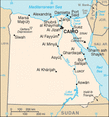From the love of knowledge came the need for translation
One of the characteristics of a language is creativity. Every human being, who knows a language, is able to understand sentences in this language, in addition to producing sentences in the same language that he/she has never heard before. And that’s a unique function of the human brain. The species of birds that are inclined to learn speech patterns can only use them repetitively and aren’t able to use them so as to produce different sentences in the way a child is able to do so.
Chomsky says that a human can generate a limitless amount of sentences out of a small range of vocabulary and he defined language as the way to express an idea or a concept. From this we can say that nothing, therefore, is impossible to translate and we can use any language to express what is said in another language. If someone can understand sentences he/she never heard before in their language and is capable of producing sentences he/ she has never heard before, then we are able to express what is said in one language using a completely different one.
An example of a language that is widely accused of not being able to accommodate certain terminologies or expressions, despite history citing the opposite, translations from other languages into the Arabic language began as far back as the beginning of Islamic Arabia. The prophet Muhammad, the prophet of Islam, encouraged his followers at this time to learn other people’s languages and the first translation found, from another language to Arabic dates back to 642 A.D. It is a manuscript that contains three lines in the Greek language translated into Arabic.
Later, huge efforts were made by Arabs to acquire the knowledge of neighboring civilizations or the lands that they conquered. They could translate thousands of books in various fields from Greek to Arabic, which is something that has made a great contribution to Islamic and Arab civilizations. An example of that is the effort undertaken when Gundeshapur was under Arab control and they had established what they called the house of wisdom, namely where scholars worked on translating medical knowledge from the Syriac language into Arabic, which was originally translated from Greek.
Chomsky says that a human can generate a limitless amount of sentences out of a small range of vocabulary and he defined language as the way to express an idea or a concept. From this we can say that nothing, therefore, is impossible to translate and we can use any language to express what is said in another language. If someone can understand sentences he/she never heard before in their language and is capable of producing sentences he/ she has never heard before, then we are able to express what is said in one language using a completely different one.
An example of a language that is widely accused of not being able to accommodate certain terminologies or expressions, despite history citing the opposite, translations from other languages into the Arabic language began as far back as the beginning of Islamic Arabia. The prophet Muhammad, the prophet of Islam, encouraged his followers at this time to learn other people’s languages and the first translation found, from another language to Arabic dates back to 642 A.D. It is a manuscript that contains three lines in the Greek language translated into Arabic.
Later, huge efforts were made by Arabs to acquire the knowledge of neighboring civilizations or the lands that they conquered. They could translate thousands of books in various fields from Greek to Arabic, which is something that has made a great contribution to Islamic and Arab civilizations. An example of that is the effort undertaken when Gundeshapur was under Arab control and they had established what they called the house of wisdom, namely where scholars worked on translating medical knowledge from the Syriac language into Arabic, which was originally translated from Greek.



